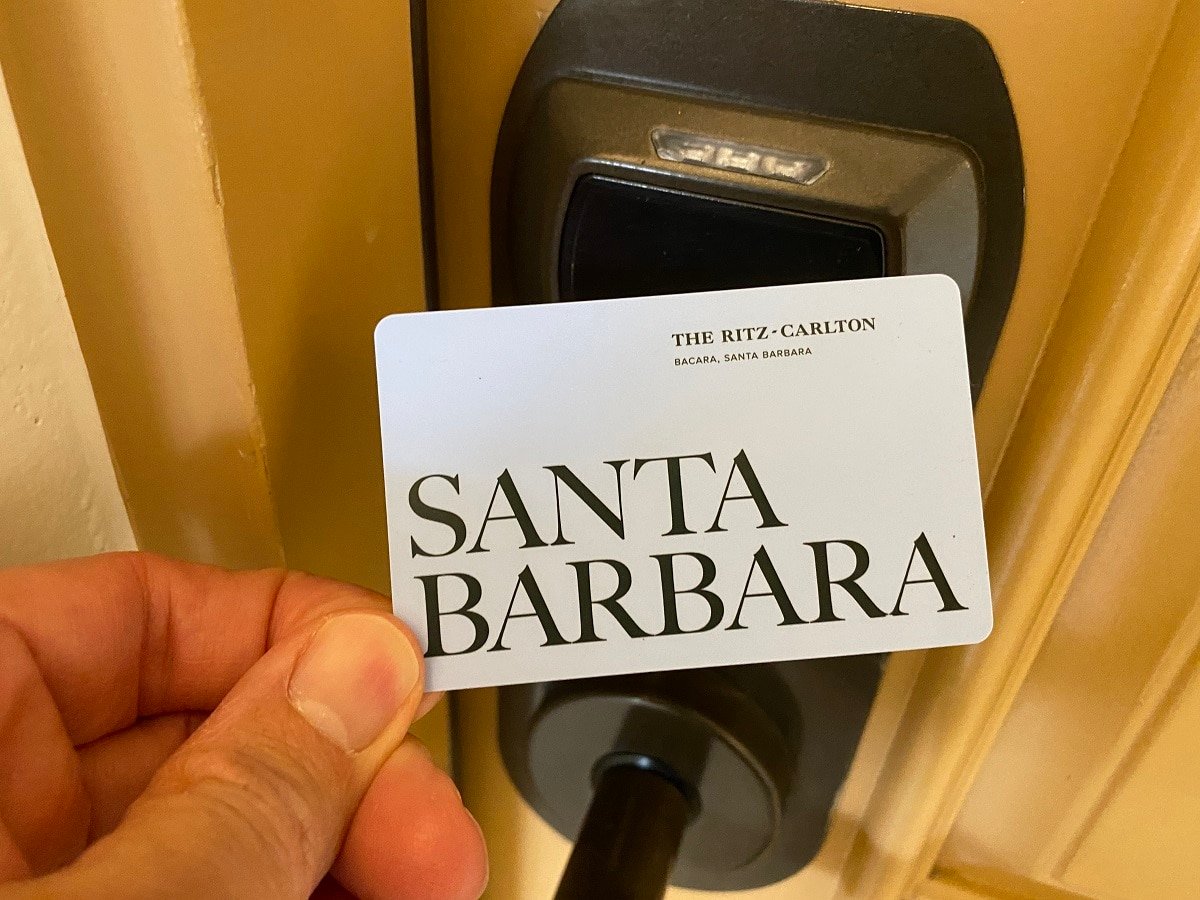This post contains references to products from one or more of our advertisers. We may receive compensation when you click on links to those products. For an explanation of our Advertising Disclosure, visit this page.
Are you going to have a hefty tax bill this year? It’s possible to pay your taxes with a credit card instead of writing a check. While you may earn rewards, note that you will likely pay an additional fee if you pay by credit. Here’s how to use a credit card to pay your taxes and whether or not it makes sense to do so.
Can You Use A Credit Card to Pay Your Taxes?
It’s possible to pay your federal taxes by credit card. You will need to check with your state’s tax department to see if they accept credit card payments. It can make sense to pay your taxes if you have one of the best rewards credit cards.
Pay Your Taxes with a Credit Card
Your online tax prep software (like TurboTax or H&R Block) may support credit card payments. If not, you will need to visit the IRS website to start payment.
Some of the types of personal taxes eligible for credit card payment include:
- Federal income tax (All Form 1040 series)
- Estimated taxes (Form 1040-ES)
- Amended returns (Form 1040-X)
- Retirement plans (Form 5329)
Businesses can also pay by credit card for these taxes:
- The balance due (Forms 940-945, 1041, 1065, and 2290)
Employer federal tax deposits cannot be paid by credit card. Also, you may only be able to make a limited number of payments each year or quarter. Pay attention to these transaction limits to make every payment count.
Tax Payment Processor
The IRS partners with three different payment processors to pay your federal taxes. You can pay with a debit or credit card. You pay processing fees to the payment processor with either card type.
Your three payment processor options are PayUSAtax, Pay1040, and OfficialPayments. All three processors accept the “big 4” credit card issuers (Visa, Mastercard, American Express, and Discover). But each processor charges a different fee amount.
If you want to pay with PayPal or a digital wallet like Visa Checkout or MasterPass, you may need to use a certain processor. Some don’t accept every third-party payment option.
PayUSAtax
PayUSAtax charges a flat $2.55 for debit card payments. Credit card processing fees are 1.96%, with a $2.69 minimum fee.
They accept digital wallet payments from Visa Checkout, MasterPass, Amex Express Checkout, and PayPal.
Pay1040
This may be the cheapest payment processor to pay your taxes with a balance above $250. Pay1040 charges 1.99% for credit card payments ($2.58 minimum charge). Debit card charges are a flat $2.58.
Digital wallet payments are accepted for Visa Checkout, MasterPass, and Amex Express Checkout. Pay1040 doesn’t accept PayPal payments.
OfficialPayments
OfficialPayments can be your best option with a tax bill below $250. Credit card processing fees are 1.99% (with a $2.50 minimum charge). This is the lowest minimum fee which benefits you when you have a minimal bill.
Debit card payments are $2 for any payment below $1,000. You pay $3.95 per payment above $1000. Visa Checkout and Amex Express Checkout are accepted but not MasterPass or PayPal.
When to Pay with a Credit Card
It can make sense to use your credit card to pay your taxes for these reasons.
Redeem Points for More Than 2 Cents Each
Most credit card points are only worth 1 cent each when redeemed for rewards. You will most likely only earn 1 point per $1 on your tax payment. So only a few cards let you earn points that can be worth more than the processing fee.
Since the fees cost slightly less than 2 cents, your points must be worth at least 2 cents each for credit card payments to make sense for point chasers.
Two cards that make this possible are the Chase Sapphire Preferred® Card and The Platinum Card® from American Express. That’s because you can transfer your points a 1:1 ratio to airline and hotel partners.
Select Chase transfer partners include United Airlines, Southwest Airlines, and Singapore Airlines. American Express Membership Rewards transfer partners include Delta, Emirates, FlyingBlue, British Airways, and Singapore Airlines.
Compare the Chase Sapphire Preferred vs American Express Platinum for more info.
Credit card points tend to be the most valuable when redeemed for award flights. In particular, redeeming them for business class or first class flights makes them worth up to 6 cents each. At this redemption rate, you “profit” 4 cents per point by paying your taxes with a credit card.
Earn a High-Dollar Signup/Welcome Bonus
Tax season can also be a good time to earn signup/welcome bonuses requiring a high minimum spend. If you pay your regular taxes with a credit card during the year, then you can use this strategy to earn more difficult bonuses.
In addition to the bonus offer, these card purchases help you qualify for loyalty bonuses. For example, paying your taxes with one of the best Southwest Airlines credit cards means you’re that much closer to getting the 135,000 Rapid Rewards necessary for the Southwest Companion Pass®.
Different credit cards offer enhanced limited time offers during the year. Although you have to pay a processing fee, you must pay your income taxes regardless. If the approximate 2% processing fee is worth paying by credit card to earn a one-time bonus, consider paying by credit card.
0% Promotional APR
Another reason to consider paying your taxes with a credit card is to get a 0% APR. The processing fee can be less than paying credit card interest or IRS late fees. You will still need to make the minimum monthly payment to maintain the promotional interest rate.
Depending on which card you pay with, you may also earn rewards points for each dollar you give to Uncle Sam.
When Not Use a Credit Card to Pay Your Taxes
The cheapest way to pay your taxes is by writing a check or scheduling a bank withdrawal. Debit card payments are also cheaper than credit cards, especially if you owe several thousand dollars.
Another reason to avoid paying your taxes with a credit card is if you’re going to carry a balance. The credit card interest rates are worth more than the redemption value of your points. Interest charges can even be more than the signup bonus you earn.
Summary
It’s possible to pay your taxes with a credit card. However, the processing fees are approximately 2% of your payment amount. This can be worth it if you can qualify for a special bonus or redeem your points for at least 2 cents each. If not, you’re better off paying the old-fashioned way to save money.
FAQs
Can I pay my taxes by credit card?
Yes. The IRS lets you pay most personal and business taxes by credit card. Simultaneously, the IRS doesn’t charge an additional fee, one of their payment processors charges an approximate 2% processing fee.
The three current payment processor partners are:
- PayUSAtax
- Pay1040
- OfficialPayments
Related: Best Small Business Credit Cards
Can I pay my taxes with a credit card on TurboTax?
Yes. TurboTax accepts credit card payments for your taxes on TurboTax. You will need to pay a payment processing fee of approximately 2% on the amount you send to the IRS. This fee doesn’t apply to the preparation fee that TurboTax collects to prepare your tax return.
Most large online tax prep programs also let you pay by credit card. You can also use the IRS e-file program to pay with credit as well if you choose.
How much does the IRS charge to pay with a credit card?
You will pay a processing fee if you pay your taxes with a credit card or debit card. However, this fee doesn’t go to the IRS. It goes to the payment processor instead.
For the current tax season, the IRS has three payment processor partners. Your credit card fee depends on which payment processor you choose. The debit card transaction fee is a fixed amount between $2.00 and $3.95, depending on which payment processor you choose.
Related Articles:








I feel slightly embarrassed to admit this, but I never even considered being able to pay my quarterly estimates with a credit card. I’ve been mailing checks and waiting (very impatiently) for them to be cleared by the IRS and Illinois Treasury Dept. I’ve been using a tool to automate most of my stuff as a full-time freelancer if anybody is interested), but this sounds like a game changer. Thank you for sharing.